Stories are heavy. Dirty truths and pretty lies, mashed up by the wild, unpredictable embellishments that coalesce around folktales time after time, all form the myths we know, love, and fear today. As mechanics and aesthetics serve as central pillars of video games, storytelling is as inextricably linked to the medium as any other, and that’s the core foundation that the award-winning Where the Water Tastes Like Wine beautifully builds upon.
As the debut effort of indie studio Dim Bulb Games, featuring a talented group of writers and a star-studded voice acting cast, Where the Water Tastes Like Wine eagerly explores the “mythological Americana folk adventure point-and-click visual novel” genre with an eerily unnerving but deeply loved austerity.
Folk Gaming
On its face, Where the Water Tastes Like Wine is a standard point-and-click adventure and choice-driven visual novel experience. Inside, the game is a unique storytelling experience in the truest sense of the phrase. Set in the prime realization of manifest destiny (turn of the 20th century America), it’s reminiscent of classic games that focus deeply on American mythology like The Oregon Trail and The Wolf Among Us, or novels like American Gods.
“It’s one big story, this country, woven of many small ones. Few of the small ones are strictly true, and the big story is mostly a lie.”
Like a good American folktale, it starts with gambling. You’ve indebted yourself to a card shark (or card wolf, rather), who just happens to have a way you can pay him back. You’re to carry stories for the wolf you owe, from sea to shining sea. You craft your first story for the wolf, choosing from several Tarot-esque cards to decide what very basic stories you’ll have in your repertoire as you set off to roam the country. Build on your first stories, collect more, share them, repeat. Story after story, your goal is to pay your debt, and find the mythical land where the water tastes like wine.
Journey for Stories
The wolf strips you of anything you were (literally and metaphorically), and sets you off to travel the country paying off your debt, one story at a time. You start in New England, specifically Maine, which is probably the best corner of the country to introduce the player to the mechanics of the game and the stories. You can follow the path before you or branch off to seek stories out in the distance. The way this game addresses the stories that create a uniquely American mythology is engrossing and inspiring. There is a deeply seated “one more turn” drive at the end of each story that leaves you yearning to share it, grow it, or just tell it.
The animation’s impressionist style is a perfect match for the surreal weirdness of the mythological nature of the game. The tales, characters, and backgrounds are starkly real but idealized, cartoonishly beautiful but also terrifying. Old things in a new and savage land. The rough, dirty brush strokes represent a diverse and wild land deep in the throes of some of its most defining growing pains.
A Travelin’ Narrative Craftsman
The studio’s strength is definitely in 2D animation. It’s not the most beautiful overworld, sparse and uncomfortably scaled. Travel is further hampered by a vague map, incorrectly colored in places with inaccurate highways. Hitchhiking is useful, if a bit difficult to execute, not to mention only going one way. As an alternative to hitchhiking or trains, the novelty of whistling as you walk to speed up is a perfect way to engage and move the player wherever their heart will take them.
Yet, the graphics overall are effective in establishing the diverse look and feel of the country. The pace of your movement suits the this method of travel from state to state, as you absorb and disseminate the stories and lives that are so uniquely American.
Which is exactly what Where the Water Tastes Like Wine is about: living out the ideals of ol’ timey railroad hoppin’ bums, the heart of American folktales, by the dozens. Travel from town to town, picking up stories and sharing them, watching them change from telling to telling, each evolving around a well-written cast of different characters. You’ve got all night to tell your stories … but once the sun comes up, it’s time to move on. You can build not just on the stories you tell, but the relationships that telling these stories will form with the main characters you meet on the road. Get to know them, what a funny story is to them, and build on that to greater ends.
The Sound of a Nation
The music is perfectly, mythologically American. It’s a dusty guitar or plinky banjo, a somber violin, soulful voices, and wooden stomp clap percussion. Real folkish fare that captures the spirit of a traveling American storyteller.
The voice-over work for these characters features truly incredible performances from some of the greatest voice actors working today. The wolf is expertly voiced by a talented musician who is at first difficult to recognize, but who delivers intimate, versatile acting: Sting, lead singer and bassist for The Police. Each of the dozen or so main characters features a talented voice actor, and their own writer as well, which contributes to the prismatic nature of the stories and the narrative pastiche it creates for the game as a whole.
Stories exist in every place, every nook and cranny of the country. Rural areas are where you can find stories and characters alike. Cities offer greater interaction, with stores and train stations, as well as job opportunities and chances to explore. Apparently we forgot the story of the Great American Invisible Wall project, because Canada and Mexico are off limits.
One Hell of a Tall Tale
As an American, I found a soft spot for this flawed but beautiful experience of ramblin’ through the bleak, grimy patchwork that is American mythology. Where the Water Tastes Like Wine certainly has its weaknesses, but in the spirit of the wretched, teeming experience that is the subject matter of the game, even those flaws became endearing.
At the end of the session (or the game, really), you develop a deep sense of attachment to stories that weren’t yours. But you carried them across the land, you watched them change, you learned and taught, each success or failure just another in a string of opportunities in a land chock full of them.
Where the Water Tastes Like Wine is available now on Steam for $19.99 USD.

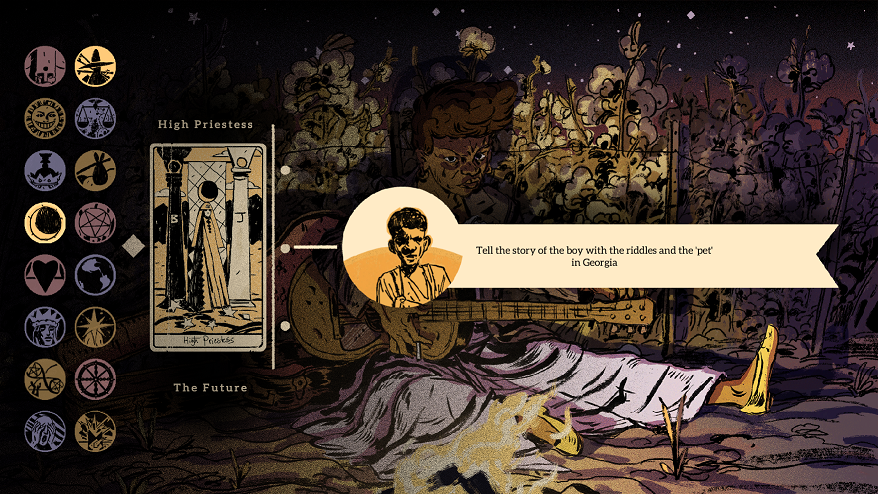
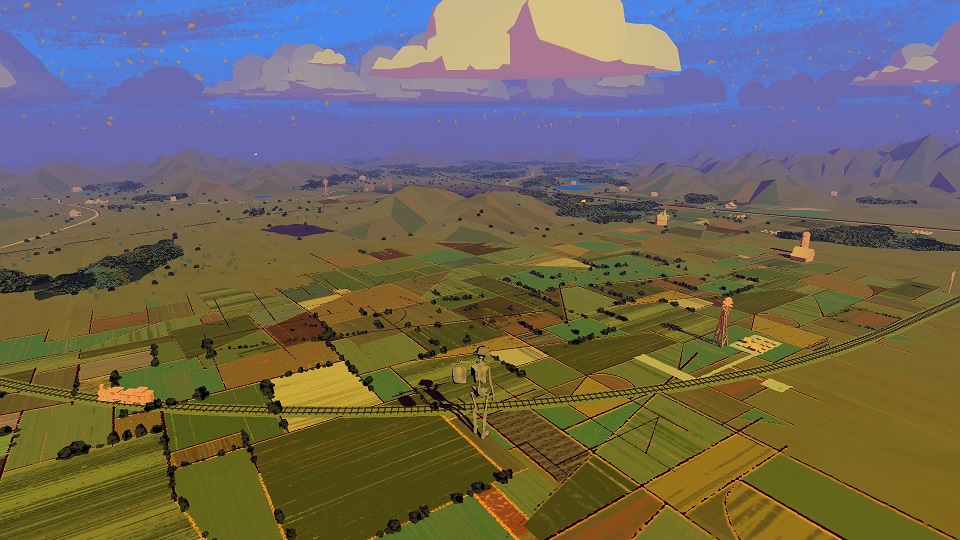
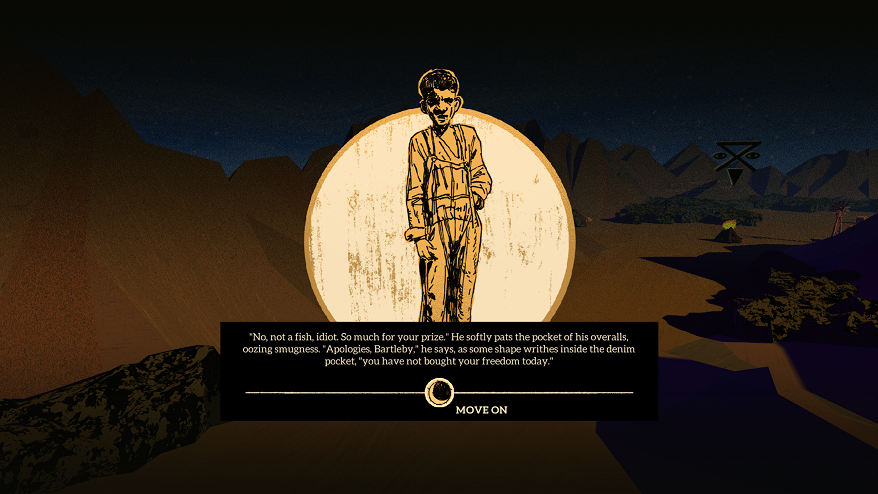
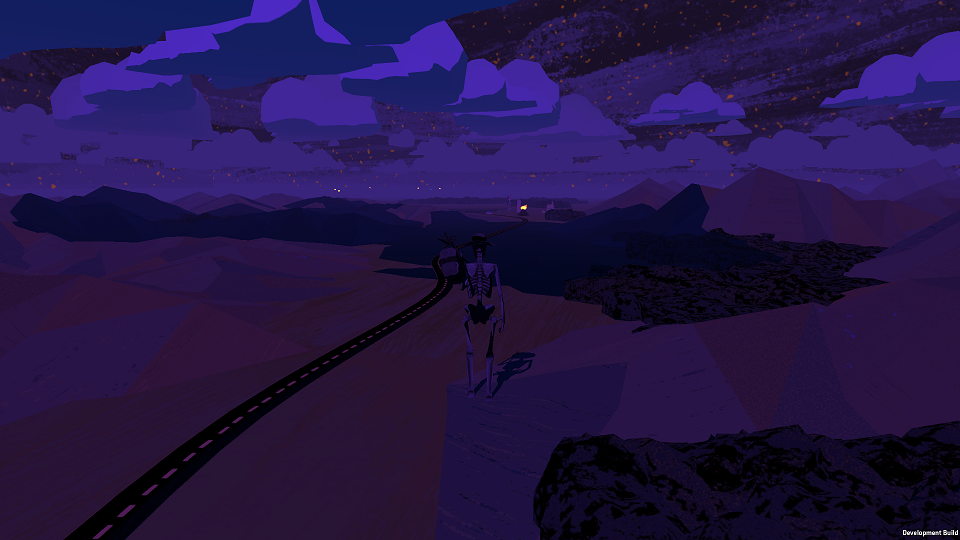
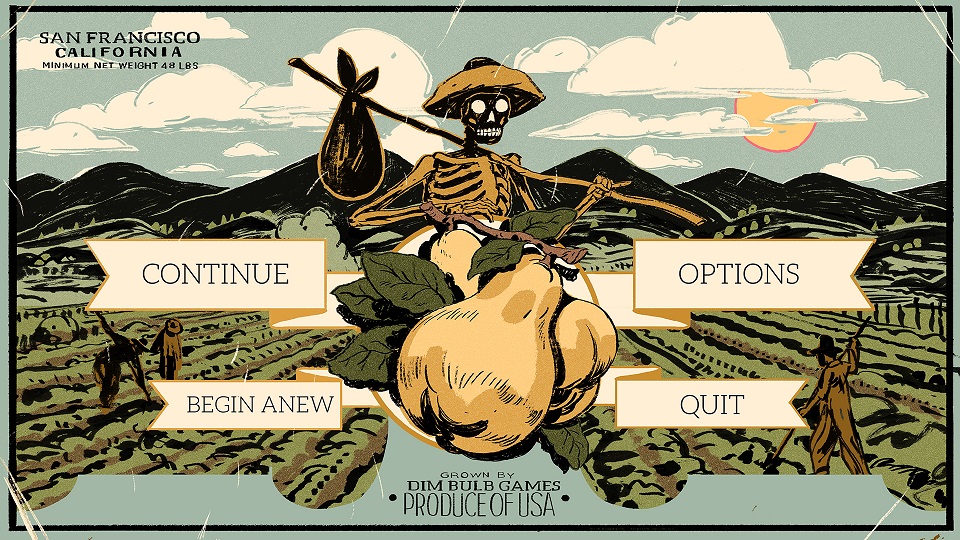





Published: Mar 9, 2018 09:23 am